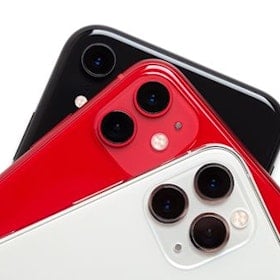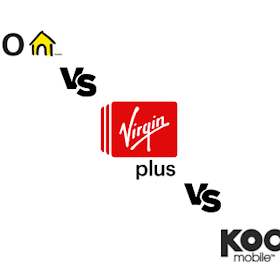Most people assume their smartphones are nothing more than distractions. Sure, they might use productivity apps or enable Focus Mode, but conventional wisdom still suggests that cell phones detract from attention rather than enhance it. In some cases, though, the opposite is true. A crop of educational apps is now on the market to aid students by simplifying unnecessarily complicated roadblocks to learning. We set out to find the best of them.
We’ve been studying the telecom industry since 2008 and have witnessed the rise of the smartphone and the arrival of iOS and Android apps. In that time, we’ve learned how to identify those apps that enhance your phone, turning the device into a powerful tool that can optimize your daily life.
For this list, we sought out the best educational apps for students, testing out the most popular and lesser-known options on the market to see what will enhance their daily lives on campus. We found plenty to admire and ranked the five best options from Quizlet, Todoist, and more.
How we rated the best apps for students
WhistleOut searches for Android and iPhone apps that are easy to use and affordable. We evaluate apps through hands-on testing and rate them on a five-star scale based on the following criteria:
- User experience: We search for apps that enhance the user experience, improving the power of your phone and making your life less complicated. The apps we recommend are intuitive, allowing users to put them to use as soon as they open them.
- Price & value: We select apps that charge minimal download fees and tend to favor apps that don't charge anything. We do include some apps that charge fees, though we guarantee that they're worth the price tag.
- Efficacy: App developers like to talk a big game; we test their products to see if they deliver on their promises.
- Practicality: Your phone has a limited amount of storage, so you don't want to clog it with single-use apps that don't improve your day-to-day life. We reward apps that are worth their weight in data.
- Privacy & security: We evaluate the permissions an app requests, sussing out the legitimate from the suspect. We also scour user reviews on relevant app stores to see if customers are reporting security concerns and investigate the veracity of those complaints.
Best apps for students

1. Quizlet
Learn faster with this all-in-one study guide app
Free 7-day trial from Apple and Google, premium version available for $9.99/month
Quizlet allows students to work collaboratively and master any course through flashcards, tests, games, and AI-powered tutoring.
The brilliance of this educational app lies in its database. Enter your institution and the course you’re taking to find past students’ flashcards. Rather than creating new materials, you’ll spend it using pre-existing ones in various ways, by taking customized tests, playing a Connections-style match game, or interacting with Q-Chat, Quizlet’s AI tutor.

Image: Kevin Kearney
For a test run, I revisited Introduction to Astronomy, a course from my undergraduate days that still haunts me. I found flashcards from the course’s many modules and got to work, matching vocab terms and running through a few custom multiple-choice quizzes. Within a few minutes, I was more confident with the terms than I ever was as a student.

Image: Kevin Kearney
Quizlet Plus unlocks even more study-focused features, including exercises from widely used textbooks and detailed explanations for those textbooks’ solutions. At $9.99/month, it’s not cheap, but the price drops to $3.75/month if you pay for an annual subscription. Students on tight budgets can check out Knowt, a free Quizlet clone. However, if you’ve got the money to spend, we still recommend the original app over its impersonator. Quizlet’s in-depth features and seemingly endless well of knowledge are worth the monthly bill.

2. Todoist
Prioritize your deadlines with this super-powered calendar
Free from Apple and Google, premium subscription available for $6.99/month
Todoist is a sleek organizational app that allows you to organize tasks, set reminders, and work towards goals.
College is filled with due dates and responsibilities across multiple calendars—exam days on Canvas, hangouts on iCal, and extracurriculars on Google Calendar. Seasoned students know that putting it all in a single place is the way to go, allowing you to cut down on clutter and streamline your day-to-day. There’s no shortage of organization apps out there, but the best is Todoist, which is perfect for students looking to take on a busy semester.

Image: Kevin Kearney
Todoist is more customizable than iCal or Google Calendar. It allows you to add detailed notes to tasks and organize long-term projects across a semester. Importantly, it also allows you to sync from those native calendars, turning Todoist into the universal guide to your many deadlines.

Image: Kevin Kearney
Todoist is free, though a premium version is available for $6.99/month or $59.99/year. There are some nice features that come with that subscription—like additional reminders, the ability to set a time duration for an event, and location-based alerts—but the free version is more than suitable for a typical college student. After all, you’re looking to have Todoist simplify your complicated life. Who needs more bells and whistles?

3. Evernote
Capture every lecture with the best note-taking app around
Free from Apple and Google, premium subscriptions from $17.99/month
Evernote is a turbo-charged notes app that allows you to scan docs and automatically transcribe voice recordings.
I’ve always been a fan of my iPhone’s Notes app, which I’d argue is the best iOS app around. Still, Notes has its limitations, especially for college students. If you need an app for notetaking, you’ll need something far more sophisticated than Apple’s native tool. Your best bet is Evernote, which offers students organizational tools designed for the lecture hall.

Image: Kevin Kearney
Open a Lecture Notes template and you’ll be able to catalog that class’s key information, with the ability to link to class materials and images. If you’re feeling old school, you can even drop in some handwritten notes or scan your marked-up rough draft for inspection at a later date. Most impressive, though, is the app’s AI-powered transcription tool. Use your cell phone’s mic to record the lecture (with your professor’s permission, of course), and then watch as the app turns it into an accurate script. As someone who conducts a lot of interviews for a living, I’ve seen my fair share of audio transcription apps, and, unfortunately, most of them are quite poor. Evernote’s, though, is strikingly clear and grammatically correct. It’s a tool I’ll definitely be using, and one I’m sure will be a gamechanger for students when it comes time to cram for finals.

Image: Kevin Kearney
Additional AI tools, including the ability to summarize and tidy your notes, will require a premium subscription, which is pricy. The cheapest option starts at $17.99/month. The free version has limits on uploads and notes, but its data allowances are still more than enough to get you through the semester.

4. Libby
Save money with your library’s digital collection
Libby lets students unlock their school’s digital collections, giving them near-unlimited access to e-books and audiobooks that can be downloaded to a phone or a Kindle.
We already named this one of the best reading apps for students, so it only makes sense that it’d appear here, too. College students pay a small fortune purchasing textbooks; if you’re a humanities student, you’ll pay hundreds of dollars every semester to keep up with your courses’ reading lists. With Libby, you can save big by checking out digital versions of those books without paying a cent. All you need to gain access to these enormous collections is a library card, something you’re granted once you start your first semester.

Image: Kevin Kearney
One of the best parts of Libby is its audiobook library. Rather than paying for a subscription service like Audible or Spotify, Libby’s audiobooks are completely free, just like everything else on the app. Dense historical treatises and complicated Shakespearean syntax will suddenly spring to life, allowing you to move through your assigned reading more quickly.

As great as Libby is, it’s not a perfect solution. Copyright law limits the number of digital copies that can be loaned out to users, so you’ll want to ensure you place holds on titles well before your deadlines. Even better, you might want to use your local library’s branch, which likely has fewer students seeking out the same titles, rather than the one at your school.

5. Fiverr
Earn a few bucks in between classes
Fiverr is a side hustle marketplace that connects you with opportunities to earn money for one-off gigs.
Finding a job during college is harder than it sounds. Most students have irregular schedules, budding social lives, and limited transportation. If you’ve got some savvy digital skills, though, you can snag side jobs through Fiverr, an easy-to-navigate job search app for graphic design, writing, and more.

Image: Kevin Kearney
The app’s major benefit is its security: you’re paid through PayPal and have Fiverr customer service if a client tries to ghost you after receiving your invoice. Using Craigslist or Facebook for gig work might avoid Fiverr’s steep fees ($2 for every transaction plus 20% commission), we think these are worthwhile costs for what you gain.
How WhistleOut reviews apps
Our mobile experts scour the app stores every month, looking for the best new apps for Android and iPhone. Before recommending an app, we use the app for at least one full workday, testing its basic functionality and evaluating whether or not it delivers on its promises. From there, we weigh the app's pros and cons, and then determine whether or not it's a worthwhile download for basic cell phone users.
-
Easy to use
Great apps simplify your phone. We selected the tools that don't require a complicated instructional manual. -
Affordability
The internet is filled with expensive price tags, but we're not buying what they're selling. We leaned into inexpensive, quality apps. Extra points if they're free! -
Hands-on testing
We played around with these before recommending them, ensuring they're worth your download.
From there, we weigh the app's pros and cons and then determine whether or not it's a worthwhile download for the wider population of cell phone users.
Related Articles
Find Better Phones and Plans
Hundreds of cell phone plans unpacked. All the facts. No surprises.








































